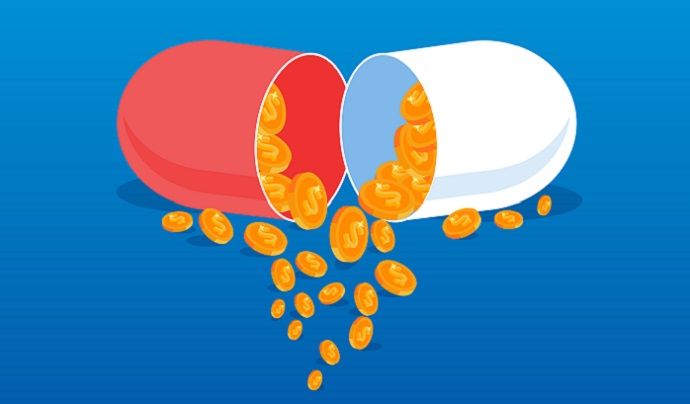Medicaid DSH Payments Cover 51% of Uncompensated Care Costs
A new GAO report shows Medicaid DSH payments offset about half of hospital uncompensated care costs in 2014, calling into question reductions starting in FY 2020.

Source: Getty Images
- Medicaid Disproportionate Share Hospital (DSH) payments covered about half of the uncompensated care costs incurred by qualifying hospitals nationwide in 2014, according to a Government Accountability Office (GAO) analysis of most recently available audited data.
DSH payments are meant to offset uncompensated care costs for hospitals treating a high proportion of Medicaid beneficiaries and uninsured low-income individuals. The GAO report released on July 29 showed that the payments are making a dent when it comes to covering uncompensated care costs.
The report found that hospitals incurred a total of $36.2 billion in uncompensated care costs in 2014. The majority of the uncompensated care costs stemmed from treating uninsured low-income individuals, GAO reported.
Costs related to the care of the uninsured comprised about two-thirds (67.9 percent) of total uncompensated care costs for DSH hospitals in 2014, and the Medicaid shortfall accounted for the remaining share of uncompensated care costs for the hospitals.
Medicaid DSH payments covered about $18.3 billion of the uncompensated care costs that year. Although, the proportion of total uncompensated care costs covered by DSH payments in 2014 varied by state, GAO pointed out.
Nineteen states made Medicaid DSH payments totaling at least 50 percent of uncompensated care costs for the states’ qualifying hospitals, while 29 states had DSH payments of less than 50 percent of uncompensated care costs for the states’ qualifying hospitals. The remaining four states included in the analysis (California, Illinois, Maryland, and Missouri) made DSH payments above aggregate hospital uncompensated care costs.
Hospitals treating a large proportion of Medicaid beneficiaries and uninsured patients are able to offset a large share of their uncompensated care costs through other supplemental payments, such as payments related to the Medicaid upper payment limit, uncompensated care pools, and delivery system reform incentive programs.
States are increasingly using supplemental Medicaid payments to support hospitals incurring a larger share of uncompensated care costs. However, the new GAO report calls into question reductions in DSH payments required by law.
In 2014, the Affordable Care Act allowed states to expand Medicaid eligibility to include more non-elderly, non-pregnant individuals in an effort to decrease the uninsured rate. Accompanying the legislation was a required phased reduction in DSH allotments to states to reflect the expectation that the number of uninsured individuals would drop, resulting in less uncompensated care provided by hospitals.
CMS has delayed the implementation of the Medicaid DSH payment cuts, so states and hospitals have time to adjust to shifting uninsured rates. The cuts are now slated to start in fiscal year 2020 when CMS will reduce the allotments by $4 billion.
But industry leaders are calling for additional postponements in light of unrealized coverage expansion gains.
“Unfortunately, the coverage rates envisioned under the ACA have not been fully realized, and tens of millions of Americans remain uninsured,” America’s Essential Hospitals, American Hospital Association (AHA), Association of American Medical Colleges (AAMC), and five other national hospital groups told CMS in February 2019.
As of May 2019, 37 states have expanded Medicaid, while 14 have decided not to pursue Medicaid expansion, GAO reported. While Medicaid expansions in certain states has led to coverage gains, the Kaiser Family Foundation (KFF) recently found that the decrease in the uninsured rate did not last.
Recent changes to the implementation of the ACA, such as the elimination of the individual mandate, have resulted in the number of uninsured individuals to increase for the first time since the implementation of the law, KFF reported.
Additionally, almost half of the uninsured (45 percent) were outside the reach of the ACA because they either resided in a non-Medicaid expansion state, were subject to immigrant eligibility restrictions, or had an income that made them ineligible for financial assistance.
Uncompensated care costs continue to rise for hospitals despite coverage changes, the Medicaid and CHIP Payment and Access Commission (MACPAC) recently pointed out. The advisory commission suggested that Congress should at least reduce Medicaid DSH payments cuts in FY 2020, if not delay the cuts.
The House Energy and Commerce Committee recently approved legislation that would address Medicaid DSH payment cuts. H.R. 2328, which also includes the No Surprises Act, would stop Medicaid DSH payment cuts in FYs 2020 and 2021, as well as reduce the cuts to $4 billion in FY 2022. The legislation moved to the House floor for consideration.
AHA has voiced their support for the Medicaid DSH payment provisions in the legislation.
